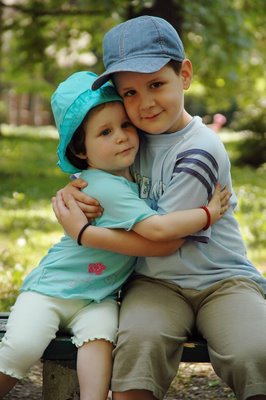About ten years ago, the Association Montessori Internationale (AMI) held its annual conference in Chicago. I was privileged to attend the conference with several other teachers from our school. The title of the conference was Grace and Courtesy: A Human Responsibility. I remember thinking beforehand, “Grace and courtesy is about shaking hands and speaking politely – how can they have a whole conference about this topic?”
Once the conference began, I was amazed to see how many different topics fell under the umbrella of grace and courtesy. Care of the classroom environment, social situations, friendships, care for the earth and its inhabitants, and the Montessori approach to high school, “Erdkinder” were among the topics covered.
Defining Grace and Courtesy
So how do we define “grace and courtesy” in the Montessori classroom? The best definition I’ve seen is that grace and courtesy should promote harmony in every level of human existence, large and small:
At a small level:
…within each person
…in relationships
…within families
At a larger level:
…in the community
…throughout the world
Today I will focus on grace and courtesy at the small level; next time, I’ll talk about how those ideas can be applied to the larger world; in the last post of this series I’ll cover the presentations of grace and courtesy that are essential to early education.
Grace and Courtesy in Inner Life
How does a child go about having inner harmony? As many of us have observed, the child in the Montessori classroom is allowed many choices. Each child’s inner life is as distinctive as their fingerprints; having the freedom to choose their work (and all the details that go with it) gives them a chance to express their true selves.
Whenever I meet older children who completed both the Montessori preschool and elementary programs, they come across as different from their peers. It’s hard to explain, but they seem more centered, more self-confident, more knowledgeable, and less easily swayed by outside influences than other kids their age.
In short, they know themselves. Self-knowledge is so important, yet it’s not the goal of traditional education. If anything, traditional education wants you to forget who you are as an individual and think only of who you are in relationship to the group. There is no chance to develop self-awareness when you are completing a pre-determined curriculum and graded on your performance within an inch of your life. Montessori education aims to reverse that paradigm.
Grace and Courtesy in Relationships
Harmony between people (a few or a lot) is part of the social skills and conflict resolution that should be the core of any Montessori classroom. Establishing “ground rules” with the help of the children is very important at the beginning of each school year. Role-playing and discussion should be done throughout the year so that children know how they should treat others – and how they should expect to be treated.
 Teachers and parents should be careful observers of child/child interaction. Sometimes intervention is necessary (for instance, if there is bullying or name-calling). Other times, behavior can be addressed at line time or group time without mentioning names; situations can be put forth to the group for input or analysis. Children enjoy brainstorming about ways to resolve conflict; having them think of their own solutions means they are much more likely to implement them.
Teachers and parents should be careful observers of child/child interaction. Sometimes intervention is necessary (for instance, if there is bullying or name-calling). Other times, behavior can be addressed at line time or group time without mentioning names; situations can be put forth to the group for input or analysis. Children enjoy brainstorming about ways to resolve conflict; having them think of their own solutions means they are much more likely to implement them.
Grace and Courtesy in Family Life
The home environment is often the least harmonious. Why is this? Home is the place where children feel comfortable trying out misbehavior. They know that parents are their first and most important educators, and expect – even crave – teaching and discipline as they grow and learn. I’ve been doing a lot of reading about this area and I hope to have more posts about it soon. Suffice it to say that having a harmonious home should be the goal of every parent, but is not a goal that is quickly achievable; it takes a great deal of commitment and consistency, and results may not be seen for years.
The Foundation of Civilized Society
It’s obvious that skills of grace and courtesy are deeper and more complicated than simply teaching children how to shake hands or hold open a door (although those are important things to know). They go to the roots of how we behave towards one another and the world around us. Attention to grace and courtesy can often be the deciding factor in the formation of rewarding friendships; whether or not someone lands a job; whether or not marriages succeed. Paying attention to the area of grace and courtesy when children are young will benefit them greatly as they enter adulthood.

